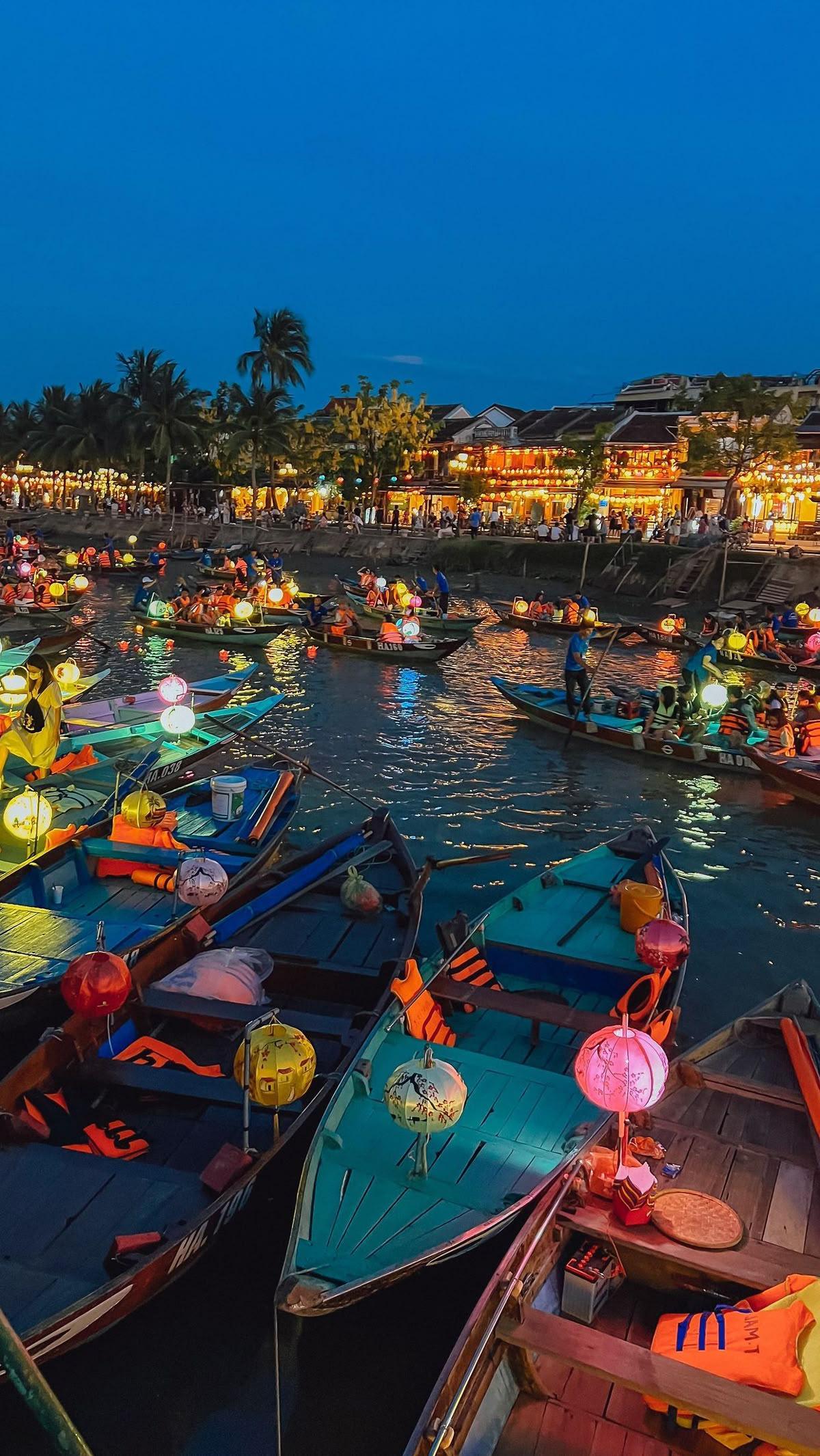
Sustainable School Tours: Future Trends in Vietnam and Cambodia's Cultural Itineraries

In recent years, the buzz around sustainable travel has grown exponentially, and the concept has seamlessly woven its way into the realm of educational tours. Imagine school trips that not only educate students about history and culture but also immerse them in the practices of environmental stewardship and community engagement. In vibrant countries like Vietnam and Cambodia, renowned for their rich cultural heritage and dynamic natural landscapes, the future of school tours is set to transform through sustainability. This article invites educators, administrators, and travel coordinators to explore how evolving trends in eco-friendly travel, community-based tourism, and innovative educational practices are shaping sustainable school tours. As we delve into these trends, you'll gain fresh insights on integrating responsible travel into learning itineraries, ensuring ethical and engaging experiences for your students.
The evolution of sustainable tourism is not just a fleeting trend; it represents a commitment to preserving the environmental, economic, and cultural resources for future generations. For school tours, which serve not only as a break from traditional classroom learning but also as immersive educational experiences, sustainability adds a critical dimension that benefits both students and host communities.
1. Embracing Eco-friendly Travel: The core of sustainable school tours starts with a commitment to reducing the environmental footprint of travel. This includes using low-emission transportation options like buses fitted with eco-friendly technologies or opting for carpooling and group transport that minimizes fuel consumption. In Vietnam and Cambodia, where environmental degradation is a pressing concern, tour organizers are now collaborating with local agencies that offer eco-friendly transportation. Moreover, many schools are initiating pre-trip awareness programs that educate students on the importance of reducing waste, conserving energy, and respecting natural habitats. These initiatives not only reduce the environmental impact of travel but also instill a sense of global responsibility in young minds.
2. Community-Based Tourism and Local Empowerment: A pivotal aspect of sustainable travel is its capacity to empower local communities. Instead of merely casting tourists as passive observers, community-based tourism actively involves residents in the tour experience. Schools touring regions in Vietnam and Cambodia are increasingly engaging local guides, artisans, and historians to offer authentic experiences that enrich the students' understanding of cultural diversity. This approach benefits the local economy by providing employment opportunities and helping preserve indigenous crafts and traditions. For example, a visit to a traditional village in northern Vietnam can include hands-on activities such as rice planting, traditional cooking classes, and storytelling sessions that bring history to life. By integrating community interactions into the itinerary, schools can foster mutual respect, cultural exchange, and a deeper appreciation for sustainability.
3. Innovative Educational Practices Bolstered by Sustainability: Educators are finding creative ways to integrate sustainability into the curriculum. Beyond the conventional lectures, environmental workshops and interactive sessions are becoming standard fare in sustainable school tours. In Vietnam, schools are collaborating with environmental NGOs to host workshops on topics such as water conservation, biodiversity, and renewable energy. Similarly, in Cambodia, tours now include visits to sustainable farms and eco-friendly small businesses that offer a firsthand look at innovative practices in agriculture and conservation.
These sessions enhance students' learning experiences by combining theoretical insights with practical applications. Schools are increasingly incorporating service-learning projects into their tour itineraries, such as tree planting or community clean-ups, which allow students to put their newfound knowledge into action. These initiatives not only help mitigate the environmental impact of the tour but also serve as powerful examples of civic responsibility and environmental advocacy.
4. The Role of Technology in Enhancing Sustainable Tours: In the digital age, technology plays a significant role in elevating the sustainability of school tours. Mobile apps and online platforms are being used to provide real-time information about eco-friendly practices, local weather updates, and conservation projects. Virtual reality and augmented reality experiences are also making their way into educational tours, offering immersive experiences of historical sites and natural reserves in 360-degree views without the need for excessive physical travel. In regions such as Vietnam and Cambodia, where cultural heritage sites may be extensive and delicate, these technologies enable students to explore remote or sensitive locations in a low-impact manner while still receiving a rich educational experience.
5. Navigating Challenges and Embracing the Future: Transitioning to sustainable school tours in Vietnam and Cambodia comes with its own set of challenges. Logistical hurdles, such as coordinating with numerous stakeholders and ensuring the accessibility of eco-friendly options, require thoughtful planning and collaboration. Additionally, shifting traditional mindsets among educators, parents, and local tour operators can take time. However, the long-term benefits far outweigh the initial obstacles. By adopting sustainable practices, schools can help preserve vital cultural and natural resources, ensure safer and more ethical travel experiences, and prepare students to be proactive stewards of the planet.
Stakeholders in this vibrant region are responding with innovative solutions, such as government-supported eco-tourism programs and public-private partnerships that aim to enhance sustainable tourism infrastructure. These measures not only facilitate smoother implementation of eco-friendly practices in school tours but also encourage a collective commitment to sustainability across communities.
6. Success Stories: Case Studies from Vietnam and Cambodia: Across Vietnam and Cambodia, there are inspiring examples of sustainable school tours that have successfully integrated environmental and cultural preservation into their itineraries. In Vietnam, a provincial school recently organized a tour to the Mekong Delta, which combined traditional boat tours with interactive sessions on water conservation and local ecosystem management. Students participated in guided tours of mangrove forests, learning about the delicate balance of aquatic ecosystems and the importance of preserving these natural habitats for future generations.
Similarly, in Cambodia, an educational tour to the Angkor Archaeological Park was transformed into a multifaceted learning experience. The tour included visits to restored community centers and cultural workshops where students learned traditional Khmer crafts. Local experts shared insights into heritage conservation efforts, emphasizing how community initiatives are crucial to preserving historical treasures. These stories not only highlight the feasibility of sustainable school tours but also serve as blueprints for future initiatives worldwide.
7. The Broader Impact on Society: Implementing sustainability in educational travel is more than an isolated effort; it is part of a broader movement towards environmental consciousness and cultural preservation. When students experience firsthand the benefits of community-based tourism and eco-friendly practices, they carry these lessons into their lives. They become advocates for sustainable practices, influencing future travel choices and even their local communities. Schools that prioritize sustainable tourism are investing in a future where ethical considerations are as imperative as educational content, ultimately fostering a generation that values both knowledge and responsibility.
8. Practical Tips for Schools Planning Sustainable Tours: For educators and tour organizers ready to embark on this journey, here are some actionable strategies:
a. Conduct thorough research on sustainable transportation and eco-friendly accommodations in your destination regions.
b. Partner with local experts and community groups to co-create itineraries that reflect local cultural and environmental values.
c. Integrate educational workshops and service-learning projects into your itinerary to ensure a balance between learning and practical application.
d. Leverage technology, such as mobile apps for environmental data and VR tours, to limit physical strain on sensitive sites while enriching the learning experience.
e. Engage students before and after the tour with preparatory sessions and reflective projects that cement the lessons learned during the journey.
9. Looking Ahead: Future Innovations and Trends: As we gaze into the future of educational tours, it is clear that sustainability will play a central role in defining the next wave of travel innovations. Future trends may include more integrated digital experiences, increased collaboration between schools and local conservation bodies, and enhanced focus on mixed-reality experiences that blend digital and physical exploration. With ongoing advancements in technology and a growing commitment to environmental stewardship, the potential for sustainable school tours is boundless. These trends will likely lead to more personalized itineraries that cater to the individual educational needs of students while aligning with global sustainability goals.
The possibilities are both exciting and promising, as educators and tour organizers prepare to meet the challenges of tomorrow with seasoned wisdom and innovative solutions today. By embracing sustainability, schools not only safeguard natural and cultural resources but also empower students to become problem-solvers and global citizens poised to lead in an ever-changing world.
Sustainable school tours are much more than a trend; they represent a forward-thinking approach that intertwines education with environmental and cultural responsibility. Our exploration into the future of educational travel in Vietnam and Cambodia has revealed that eco-friendly practices, community-driven tourism, and innovative educational methods are set to redefine the way school tours are conducted. By embracing sustainable travel, educators can provide students with experiences that are enriching, ethical, and transformative. This article has underscored the importance of integrating these practices, empowering students to become mindful travelers and responsible global citizens. As we stand on the brink of a new era in educational travel, the question is not whether schools can afford to adapt to these sustainable practices, but whether they can afford not to. Let the journey towards sustainability in education begin.
Related Blogs

open their eyes. change their life.
Empowering journeys that inspire growth and lasting memories.
© 2025 Vietnam School Tours. All rights reserved.







